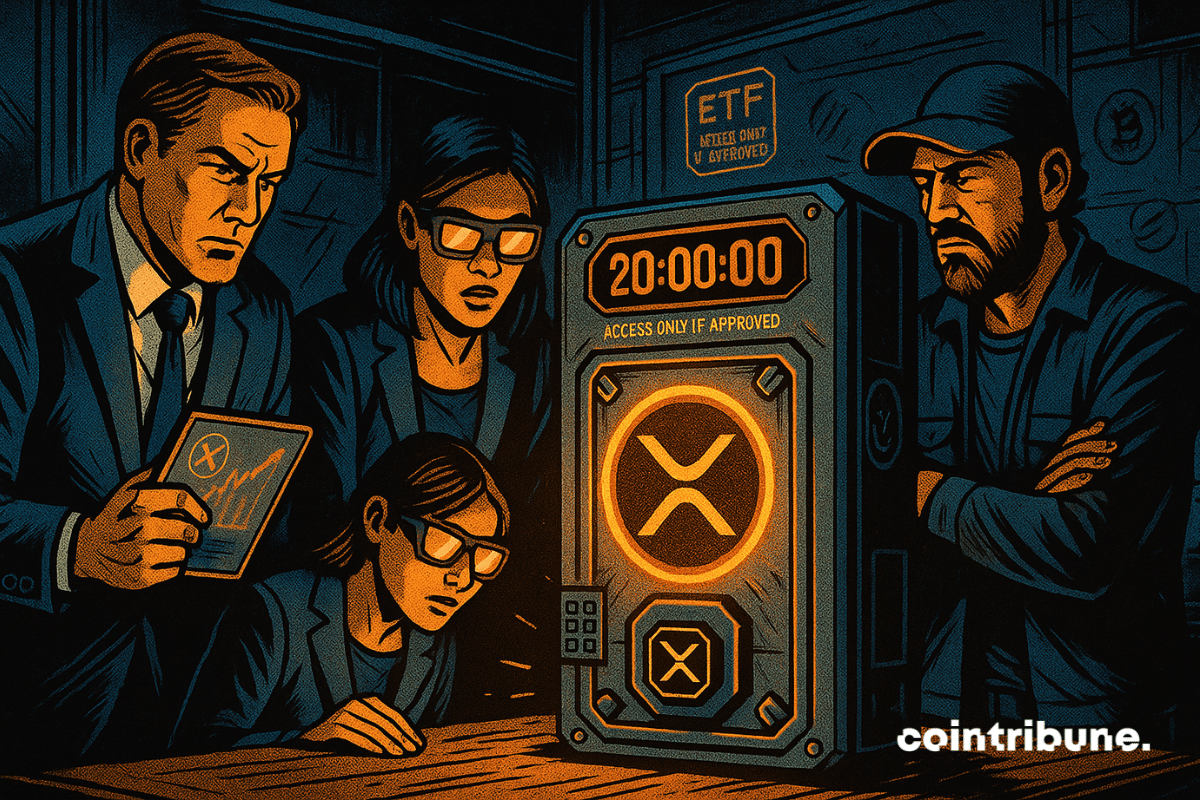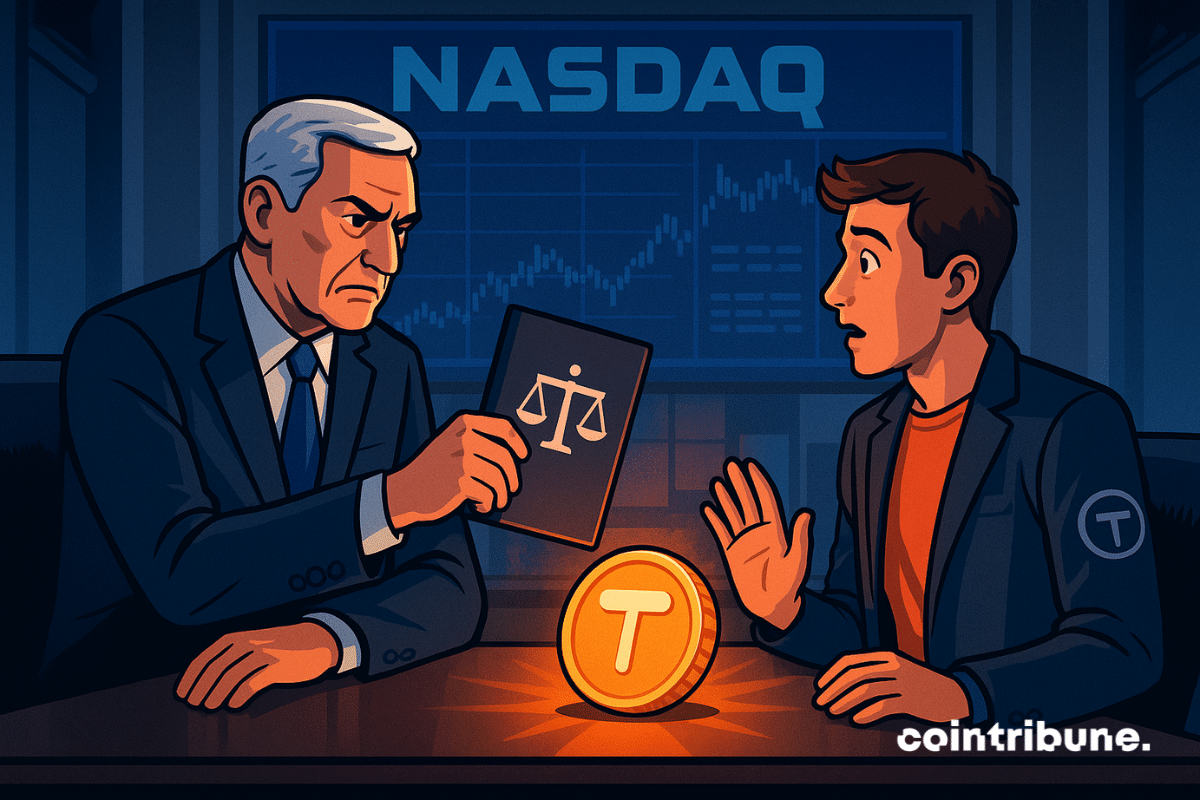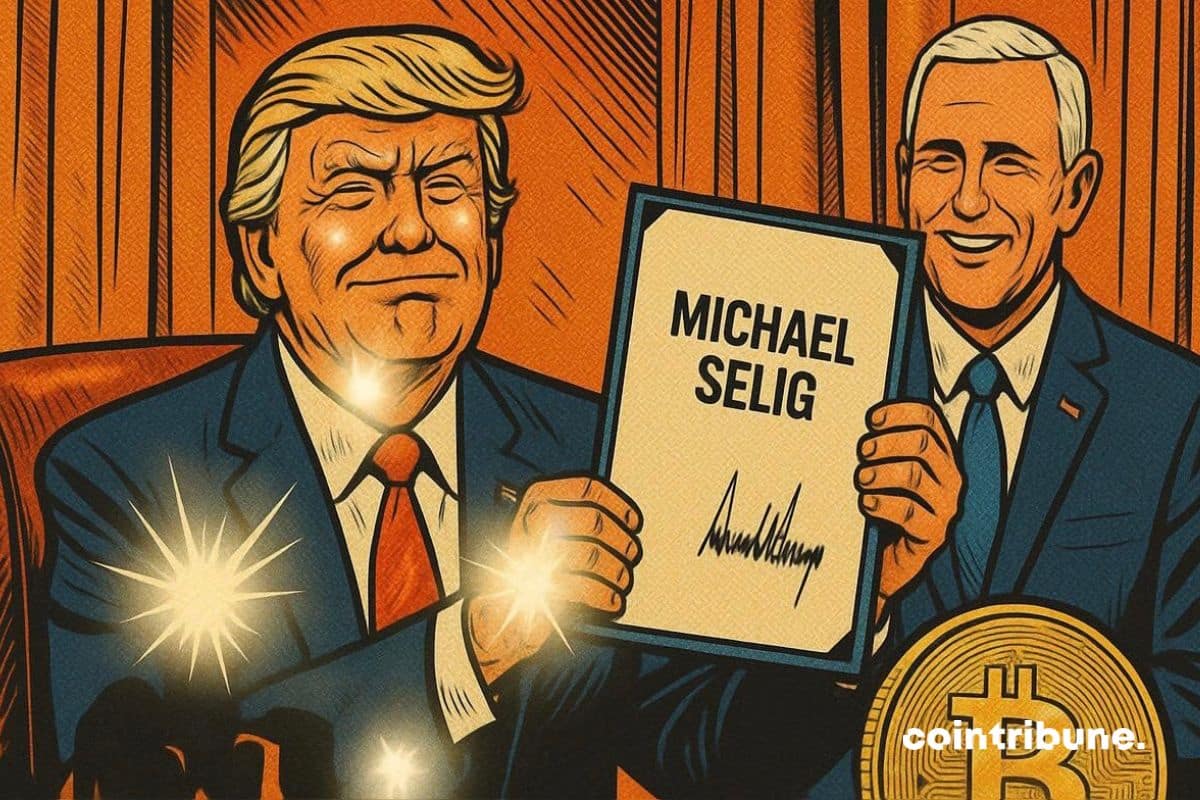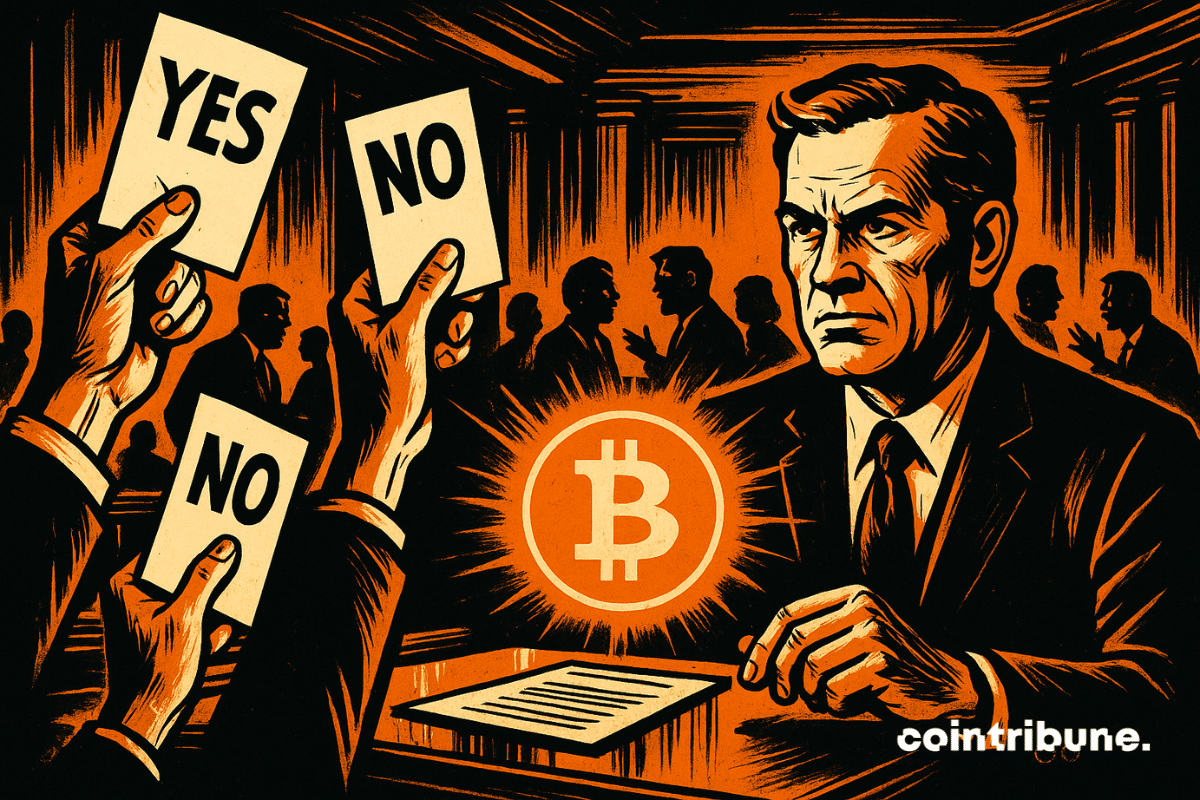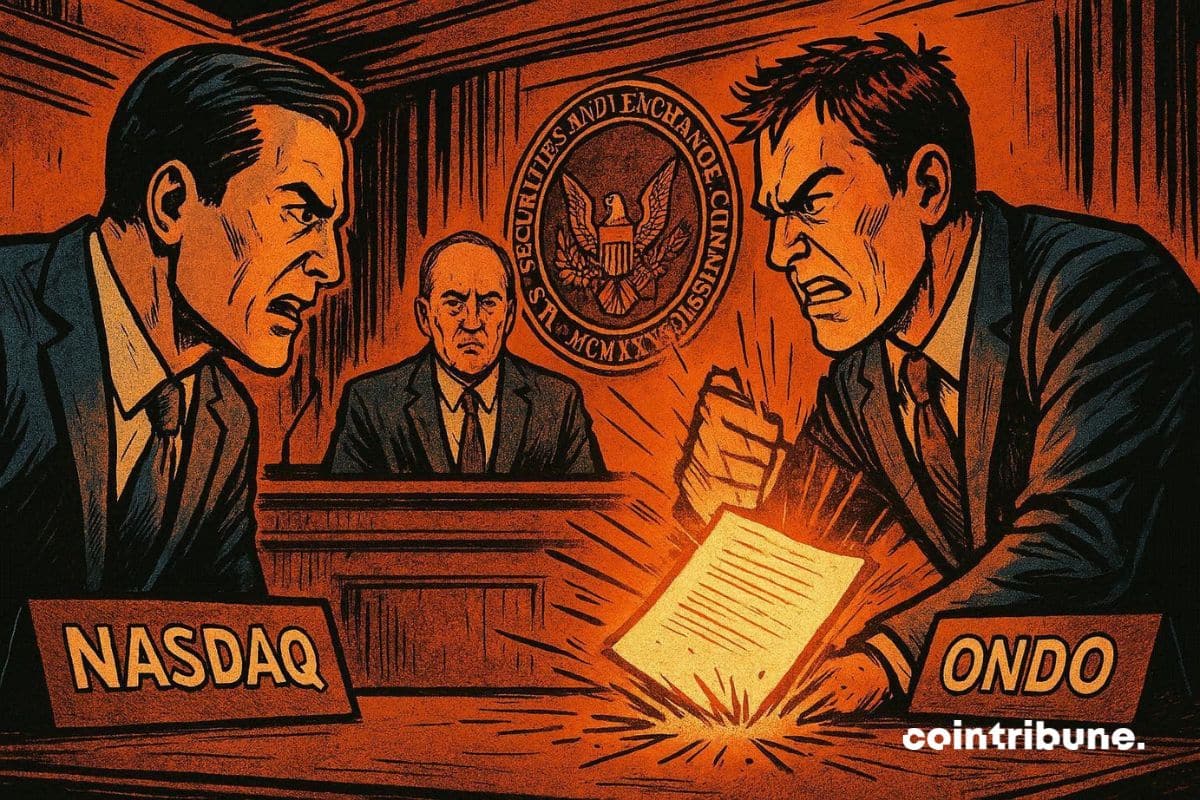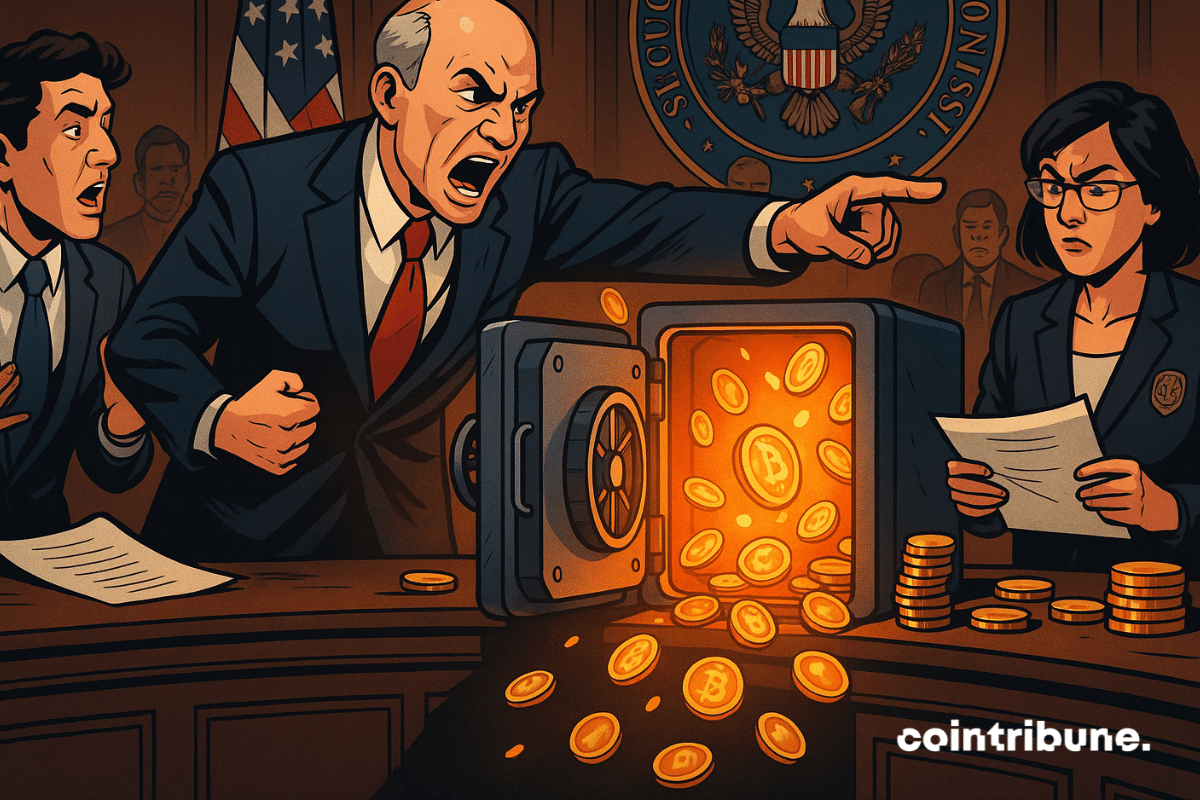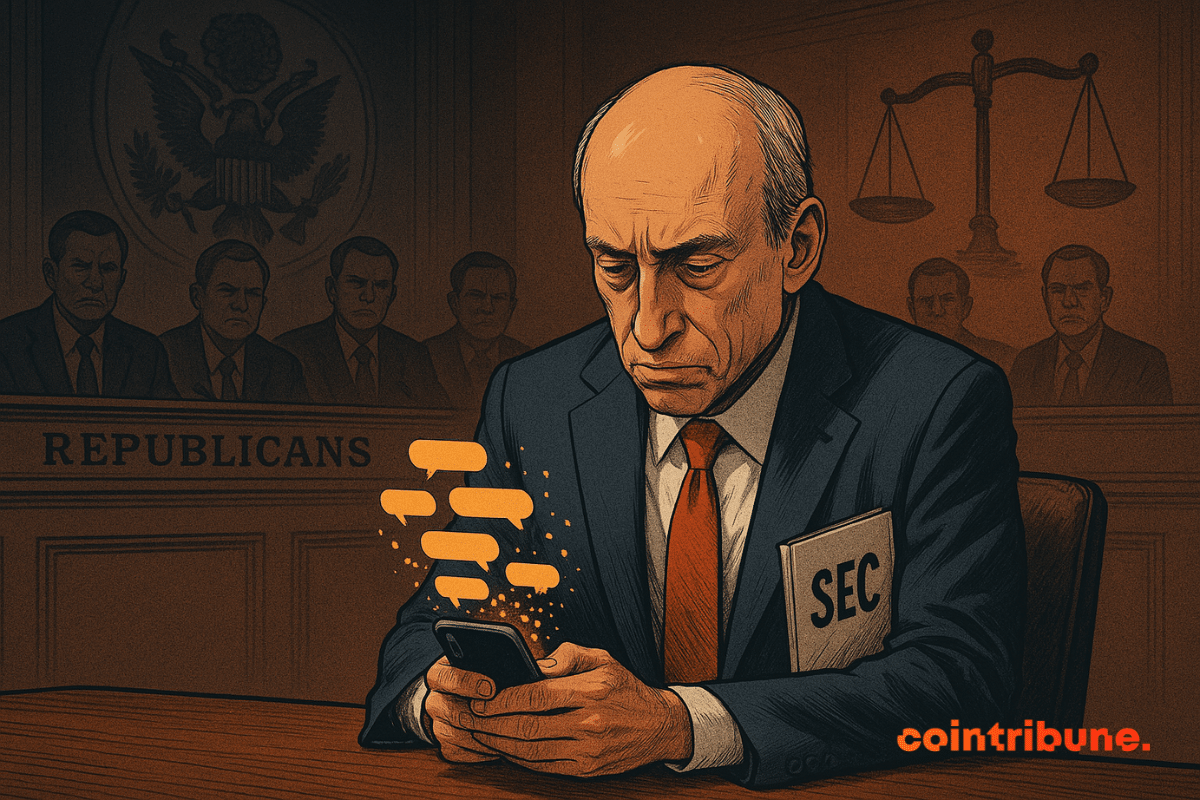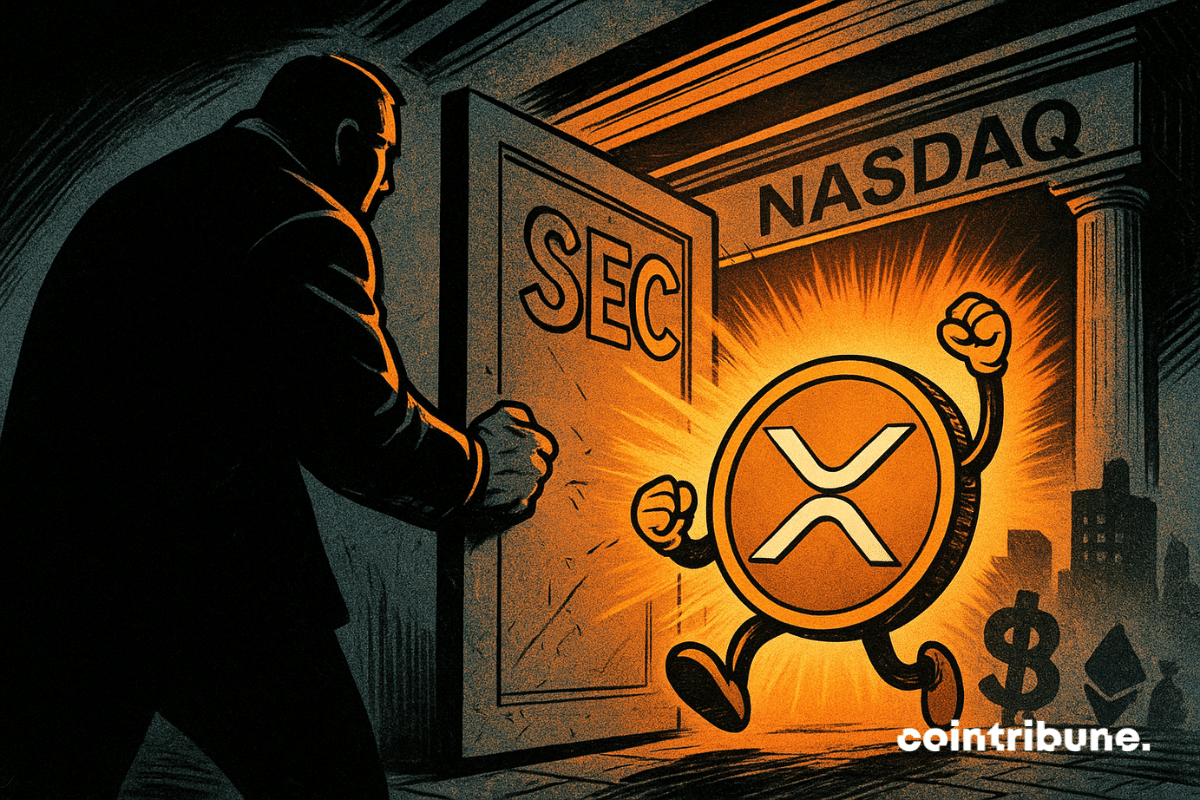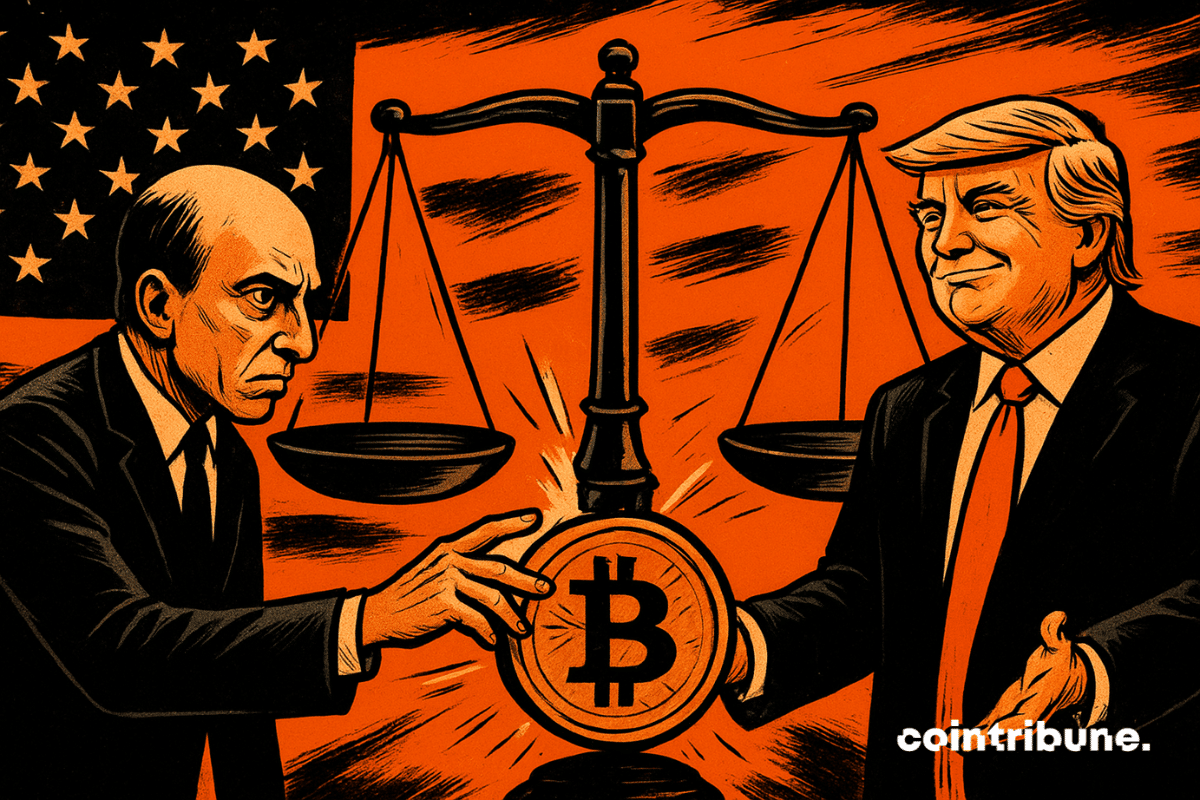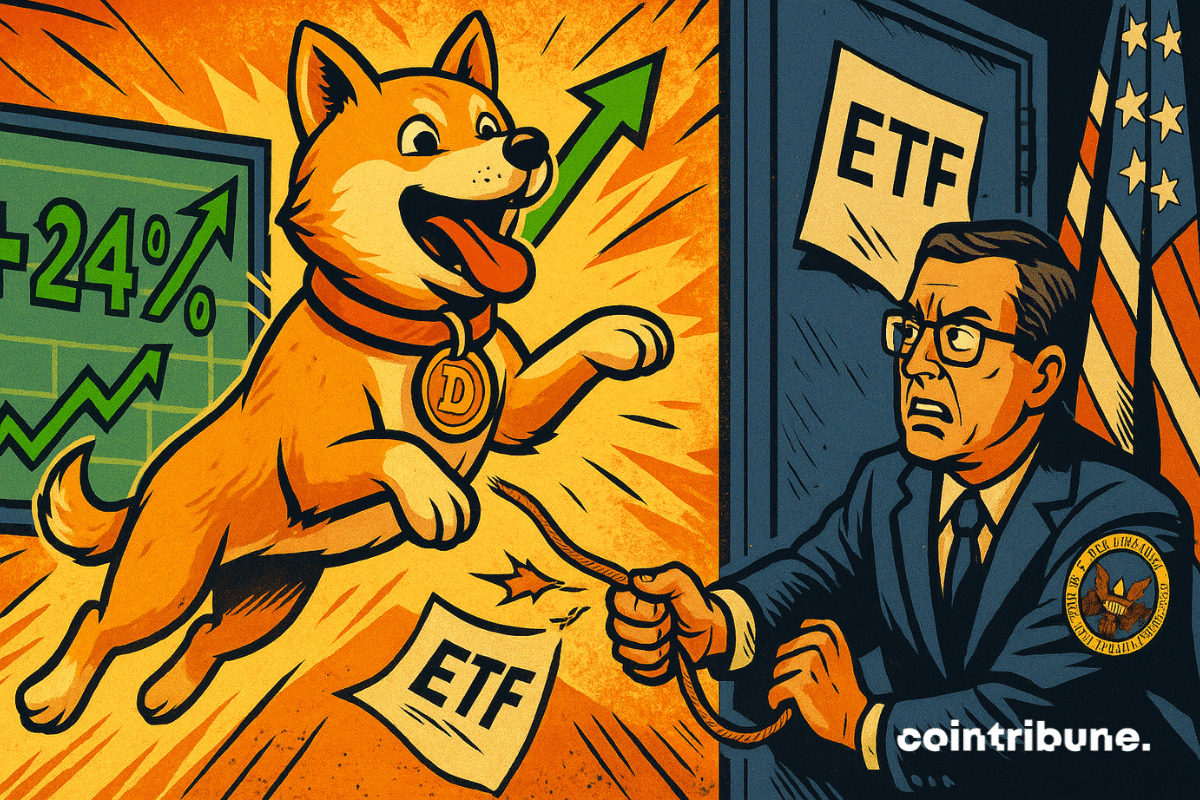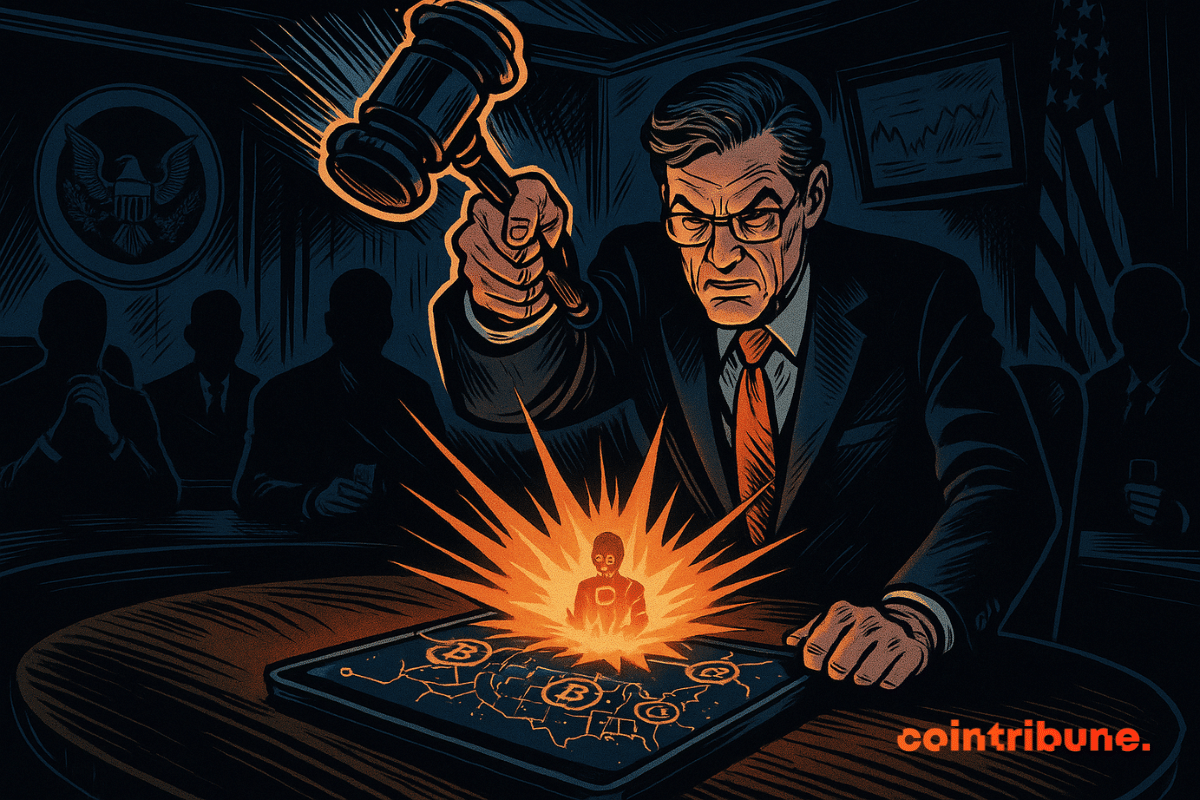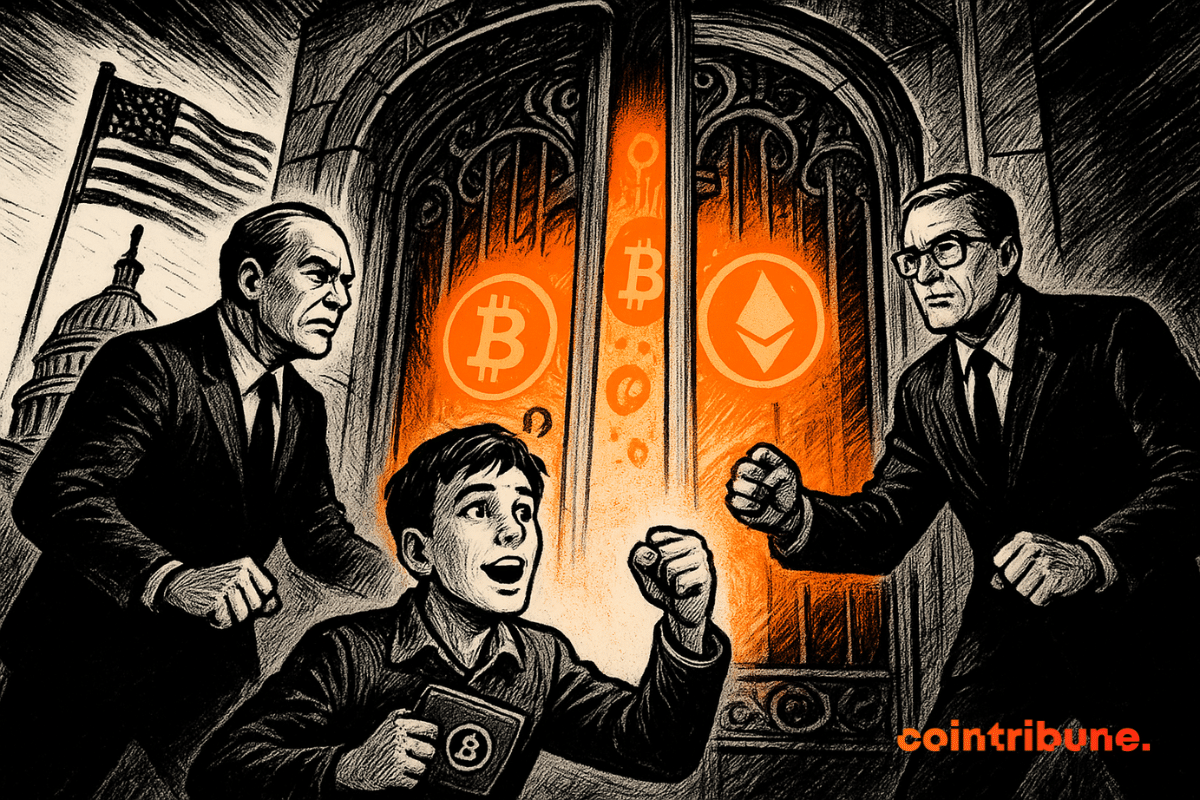While the United States struggles to align on crypto regulation, the Senate breaks the deadlock. The Agriculture Committee has just unveiled an ambitious bill aimed at clarifying the roles of regulators, CFTC and SEC, and laying the foundations for a coherent legal framework. Led by Senators Boozman and Booker, the text also addresses key concepts such as DeFi, DAOs, and blockchain. This is a first step towards more readable regulation.
Securities and Exchange Commission (SEC)
The countdown is on for an XRP ETF. Two asset management giants, 21Shares and Canary Capital, have initiated a legal procedure that could force the automatic approval of their funds within 20 days, unless the SEC explicitly vetoes it. In a climate where the institutionalization of cryptos is accelerating, this maneuver could propel XRP to the heart of regulated markets. This historic first places the American authority with a decisive choice or a silent deadline.
A new European Commission plan to expand the powers of the European Securities and Markets Authority (ESMA) has stirred debate across the continent. The proposal aims to tighten regulatory consistency across crypto and financial markets. However, critics warn that the move could slow innovation and reduce agility within Europe’s growing fintech sector.
Nasdaq has formally reprimanded TON Strategy for violating listing rules tied to its $272.7 million Toncoin purchase and related PIPE financing. The company, formerly known as Verb Technology Company, failed to secure shareholder approval before issuing stock to fund the deal, according to a recent SEC filing.
Time is running dangerously fast for the US Congress. As the federal government undergoes a historic shutdown, Republican Senator Thom Tillis issues an unequivocal warning: the window to pass crypto legislation will remain open only a few more weeks. After that, it will be too late. What makes this deadline so critical?
While the SEC is on strike, crypto ETFs quietly arrive on the Nasdaq. Solana, Hedera and Litecoin make their way to Wall Street, and this is just the beginning...
Donald Trump has just appointed Michael Selig to lead the CFTC, a decision that could disrupt the future of cryptocurrencies. With a pro-crypto profile and a clear vision, Selig embodies the American ambition: to become the global capital of crypto.
The traditional landmarks of investment are faltering. Faced with market volatility and eroding confidence in classic portfolios, more and more American investors are turning away from stocks and bonds to explore assets deemed more dynamic: crypto, gold, oil, private equity. This movement reflects a profound questioning of established models, driven as much by distrust as by the pursuit of return and freedom. A structural shift confirmed by the latest figures from the Charles Schwab survey.
The United States government shutdown is nearing its fourth week, putting pressure on lawmakers to resolve the funding impasse while also addressing key issues in the digital assets sector. As the Senate prepares for another vote to reopen the government, Democratic senators are moving forward with plans to meet crypto executives to discuss the stalled market structure bill.
The tokenization of securities divides the giants of finance: Nasdaq wants to revolutionize Wall Street, but Ondo Finance cries out for lack of transparency. Who is right? Dive into this battle that could redefine the future of crypto and your investments. The outcome will surprise you.
Since October 1st, Washington has been paralyzed. Congress remains mired in its budget divisions, and the crypto industry is paying the price: sixteen crypto ETF applications await approval, including funds following Solana, XRP, Litecoin, and Dogecoin. Could this administrative paralysis paradoxically trigger a wave of approvals as soon as reopening?
The SEC is preparing to introduce an “innovation exemption” that would give companies more flexibility to develop digital assets and emerging technologies. SEC Chair Paul Atkins said the proposal could be formalized as soon as the end of this quarter, despite challenges caused by the ongoing government shutdown.
The SEC’s new guidance on crypto custody has split commissioners, with Hester Peirce praising clarity and investor protection while Caroline Crenshaw warns it weakens safeguards.
Republicans in the U.S. House of Representatives have launched an investigation into the disappearance of text messages from Gary Gensler, former head of the agency. These texts, deleted while he led the SEC, could contain sensitive exchanges related to prosecutions against the crypto industry.
What if October became Solana's month? Several spot ETFs with staking could be approved by the SEC within two weeks. A decision that could trigger a new institutional momentum and reshape the crypto landscape. But will this regulatory recognition be enough to propel SOL to a status comparable to Bitcoin and Ethereum?
The U.S. exchange-traded product (ETP) market for digital assets is taking another step forward. With regulators broadening the framework for crypto funds, XRP has now been included in a Nasdaq-listed multi-asset spot crypto ETF, giving investors easier access to a wider set of cryptocurrencies.
Exit Gensler, here comes Atkins: the SEC shifts from the brake to the accelerator. "Innovation exemption", multi-crypto ETP, stablecoins… Washington finally discovers that blocking costs more than moving forward.
On Monday, the U.S. and U.K. launched a new joint task force to improve cross-border capital flows into the crypto sector. The special alliance, aimed at strengthening ties between the two nations’ digital asset industries, will include regulators from both countries.
Paul Atkins, the current chairman of the U.S. Securities and Exchange Commission (SEC), and Gary Gensler, the agency’s former chief, both appeared before the media this week to discuss the regulatory atmosphere under the current administration, particularly policies proposed by President Donald Trump.
The SEC has introduced new rules to speed up approvals for spot cryptocurrency ETFs, allowing faster market access while maintaining oversight.
The iconic memecoin Dogecoin continues its rise, driven by market enthusiasm. Despite another delay in the launch of its first American ETF, institutional investors remain alert and seem little affected by this announcement.
Coinbase relaunches the offensive against the SEC. The exchange asks the federal court to investigate the alleged deletion of a year of messages from Gary Gensler, former chairman of the financial authority. An explosive case likely to tarnish the record of a leader already known for his hostility towards the crypto ecosystem.
October 10 could mark a turning point for Solana. Bitwise CIO Matt Hougan sees this deadline as a catalyst comparable to the movements that propelled Bitcoin and Ethereum in recent months. Should we prepare for a "Solana season"?
Nasdaq has officially filed a request with the SEC to authorize trading of shares and ETPs in tokenized form. A breakthrough that could disrupt Wall Street and accelerate the integration of blockchain into traditional financial markets.
The SEC changes its tone and no longer considers crypto assets as securities. Discover all the details in this article!
The U.S. Securities and Exchange Commission (SEC) has once again postponed its decisions regarding two highly anticipated crypto ETFs. The Bitwise Dogecoin and Grayscale Hedera ETFs will have to wait until November 12 to learn their fate.
Bitcoin, does it take away or does it enrich? For Michael Saylor, it inflates the wallet: $7.37 billion gained despite a market drop. Proof that faith pays off.
Solana speeds like lightning but stalls below 215 dollars: ETF lurking, record upgrade and flashy meme-coins. Crypto hesitates between a surge and a scheduled slip.
American crypto-focused prediction platform Polymarket has been granted operational greenlight after the U.S. Commodity Futures Trading Commission (CFTC) issued a no-action notice to two entities linked to the company. This action follows the application for regulatory relief in July.
Regulated exchange platforms can conduct spot cryptocurrency trading activities, according to a joint statement by the U.S. Securities and Exchange Commission (SEC) and the Commodity Futures Trading Commission (CFTC) on September 2, 2025. This policy clarification marks a key regulatory step that could help drive crypto trading and promote investor protection.

